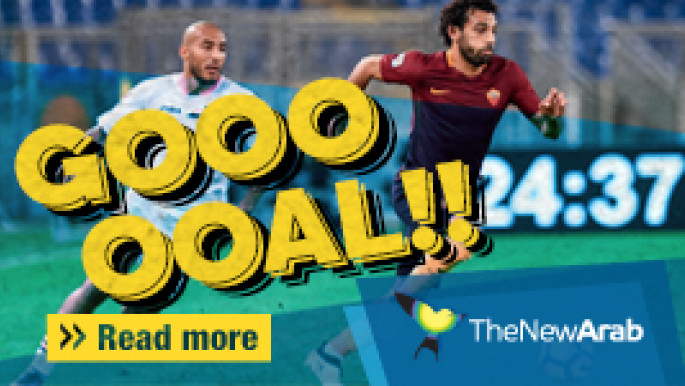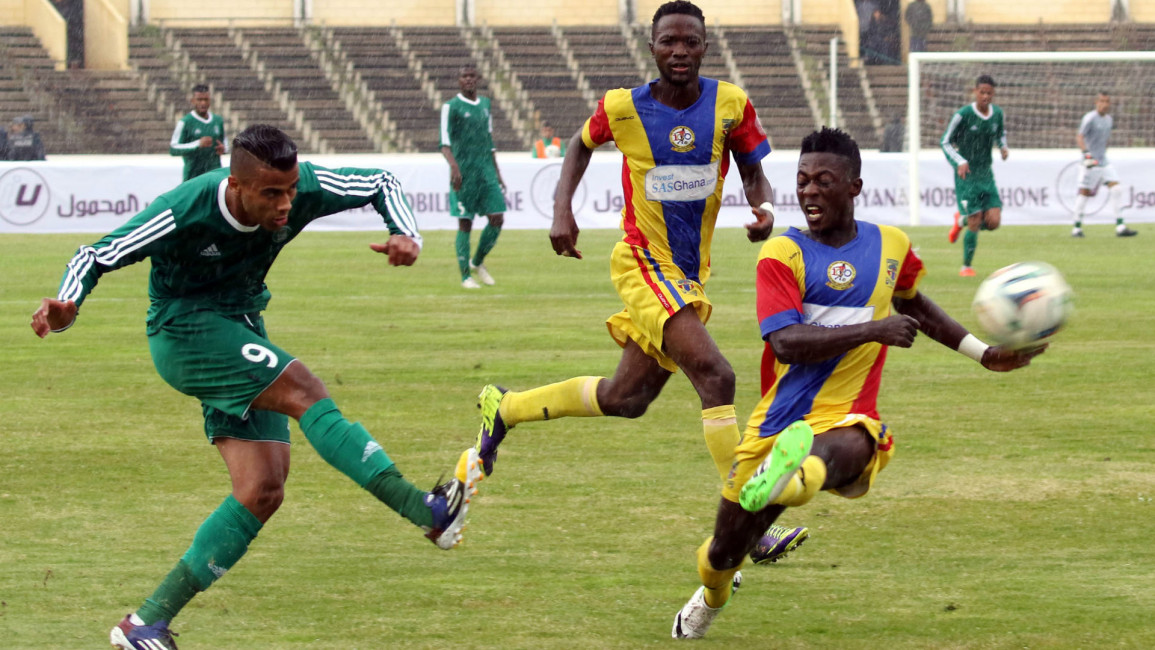
Politics on the pitch: This week in Middle East football
While Middle Eastern football is on a break until the Arab Champions Cup later on this month, the African competitions are attracting most of the attention of the football fanatics in the region. And for some good reasons.
On Friday afternoon, FIFA revealed its decision to suspend the Sudanese football association due to government intervention in their FA's last election.
FIFA issued a warning last month, after the Sudanese government literally installed a new FA president. FIFA-recognised president Mutasim Gaafar Sir Elkhatim was removed and replaced by Abdel Rahman Sir Elkatim.
These kinds of issues are treated with little patience by football's world governing body, as past cases of Indonesia and Kuwait already showed - any political or governmental inference in the game causes sanctions.
On the other hand, it is problematic that FIFA officials are accused of bribery and corruption. Moreover how can FIFA, as the political organisation of soccer, act against a political intervention in football? Think about it.
 |
|
| Catch up with all our football news |
All in all, the Sudanese suspension means that Sudan's three clubs in the continental tournaments have been eliminated immediately from the African Champions' League and Confederation Cup, by the Confederation of African Football -CAF.
Al-Hilal Omdurman is already out of the Champions' League, but Al-Merreikh, who were preparing to play Etoile du Sahel of Tunisia, are now out. Hilal Obeid, meanwhile, having already qualified for the Confederation Cup playoffs, have been eliminated from the tournament. Their runners-up in qualifying, ZESCO United from Zambia, are into the next round.
This is a serious blow for Sudanese clubs who have been making positive progress this year, despite local conditions and the changes in FA leadership. Football is a sport that supposed to be played on a level playing field, but in the Middle East and Africa, it is common to see politics playing instead of the teams.
A good excuse for a celebration
But not all the stories from the African Champions' League involved politics. Well, they did, but not all in a negative way.
The 2016/17 competition wasn't played in Libya due to the security and instability in the country, as the LFF - the Libyan Football Federation were unable to launch the league properly.
Only five teams played in four-round league until November 2016.
The champions, Al-Ahli Tripoli, have now done the unbelievable - on Sunday night, drawing 2-2 with the Egyptian giant Zamalek, eliminating Egypt's White Knights - last season's runners-up - and sending the modest Libyans, who haven't played regularly in the past year - all the way to the African Champions' League quarter-finals.
Zamalek opened the match in a decisive way and Bassem Morsi gave them the advantage, but the Libyans - with local figure Mohamad Al-Ghanoudi and Mabidé from Comoros - turned around the scoreboard.
Zamalek had to win by two goals in order to progress from Group B, but only managed to tie the score 2-2, which meant a huge victory for Al-Ahli Tripoli - the new Cinderella of the African Champions' League.
Al-Ahli will now face Tunisian Etoile du Sahel in the next round. Al-Ahly (Egypt), Ittihad (Algiers), Wydad (Morocco) and Esperance (Tunis) are the other North African teams to reach the knock-out stage.
In difficult times in Libya - with the multiple governments vying for control after the revolution, the battle with IS and a variety of militias, the sucecss of Al-Ahli Tripoli is a good reason for a celebration and a moment of national pride. Mabrouk.
Persian Maradona supports women's rights
In Iran, women are not allowed in stadiums to watch soccer. For years, this has triggered many protests, worldwide, in almost every international match of an Iranian national team in any sport.
But in the past few days, Ali Karimi - probably Iran's best ever player - has criticised the stadium ban on women. The Persepolis playmaker, who also won the Bundesliga with Bayern Munich, and is now coach at Naft Tehran showed his support in the struggle to women watch the sport.
Karimi is the second footballer to criticise the Iranian government over the ban, after Masud Shojaeim, the national team captain, personally asked President Rouhani to lift the ban on female fans - to support "Team Melli" in their World Cup qualifiers against China.
The struggle to remove the ban from female fans in Iran is far from over, but these comments by official and famous football figures is making an impact - on public opinion, at least - in Iran and worldwide.
Now the pressure is on Rouhani.
Uri Levy runs the popular football blog BabaGol, which covers football and politics focusing on the Middle East. Follow him on Twitter, and read his blog here.




